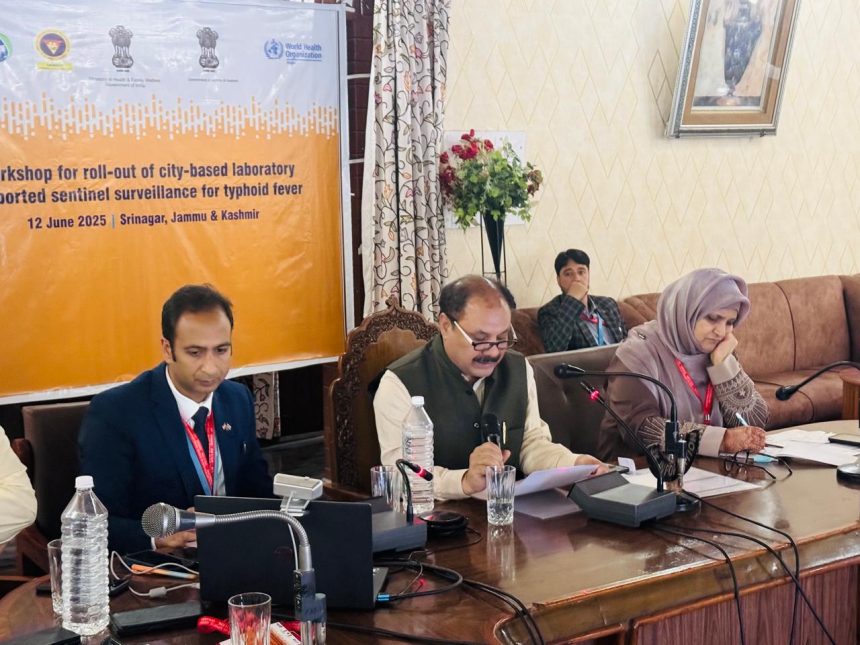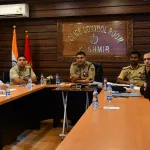Srinagar, June 12: A city-based sentinel surveillance system for typhoid was officially launched in Srinagar today through a capacity-building workshop held in Srinagar. The initiative is supported by the Ministry of Health and Family Welfare (MoHFW), Government of India, with technical support from the World Health Organization (WHO) and GAVI.
The event was inaugurated by Dr Mushtaq Ahmad Rather, Director Family Welfare and Director Coordination for New Medical Colleges. Dr Mushtaq Ahmad Rather, described the workshop as a launchpad for long-term typhoid surveillance and evidence-based policy. He emphasized the role of medical colleges in supporting national health goals and outlined key outcomes– establishing a surveillance framework, enhancing clinical awareness, strengthening lab-to-field coordination, and promoting data-driven decision-making. He urged all stakeholders to engage actively and make this initiative a model for the country.
Dr Masrat Jabeen, Assistant Director, Family Welfare, MCH and Immunization Kashmir, Dr Tahir, CMO Srinagar, and also addressed the participants, stressing inter-institutional collaboration for successful implementation. Dr Ashiq Rashid Mir, SMO WHO Kashmir Division, along with faculty from GMC Srinagar, SKIMS Medical College Bemina and SKIMS Soura, representing the departments of Paediatrics, Microbiology, and Community Medicine (SPM), served as key resource persons, leading technical sessions and hands-on exercises.
It was also attended by administrative officer, FW, MCH and Immunization J&K, the District Immunization Officer, Srinagar and District Immunization Officer Anantnag, Health Officer, SMC, along with paediatricians and microbiologists from JLNM Hospital, UPHC Hazratbal, Gousia Hospital, UPHC Batamaloo, and UPHC Chanapora. Training was provided on typhoid case identification, sample collection, laboratory testing, surveillance tools, and public health response planning The National Programme Officer from WHO Country Office, New Delhi, joined virtually and reiterated WHO’s continued support. Srinagar is among the first cities to initiate this critical public health surveillance effort.








